The 10 strangest moments of product placement in gaming history
Money! That's what they want
Gotta spend money to make money
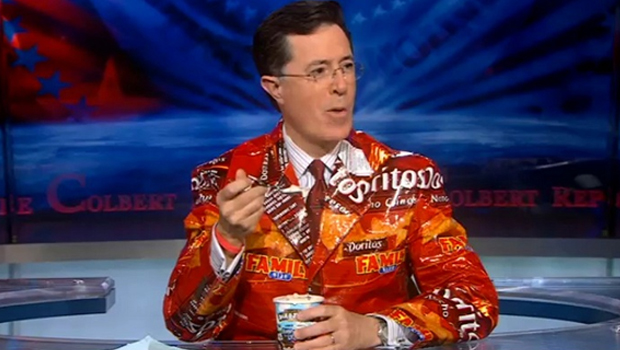
One of the biggest complaints from game publishers this generation has been the rising cost of development. Its all too easy to spend tens of millions of dollars on AAA games, leading to the crazy scenario of a release being deemed below sales expectations after shifting 4 million copies. Publishers need extra income wherever they can find it, and theyve increasingly used a tactic film and TV producers embraced long ago: product placement.
Skyfall, the most recent James Bond film, made an estimated $45 million by surrounding 007 with Volswagens and Heinekens, so why should game publishers skip the added income? Of course, filling the upscale world of James Bond with famous products makes a certain amount of sense, but more than a few games have taken that ad money without considering how much the endorsements will stick out like a sore thumb. Here are a dozen games whose real world items ended up being glaring oddities instead of the subtle commercials the sponsors had hoped for.
Alan Wakes Verizon phone
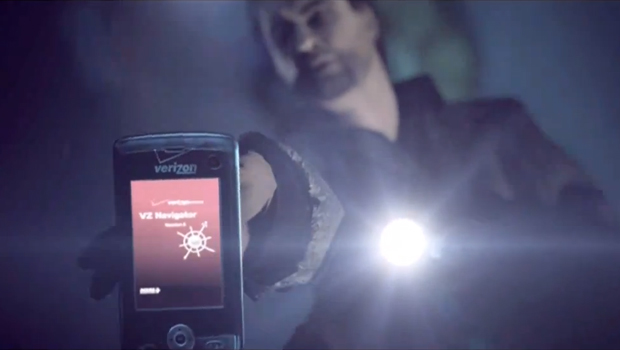
Alan Wake had a notoriously long development, so we sympathize with developer Remedy attempting to supplement its budget by adding real world products. And some made a certain amount of sense, like the Energizer batteries inside Alan Wakes ever-present flashlight. But when the character enters an inescapable nightmare world in search of his missing wife, would his Verizon phone really be all that useful? Surprisingly, yes.
The games first DLC was The Signal, and it saw Wake searching for an exit from the all too familiar dream world he was trapped in. He was so deep in the void that nothing could reach him... except for the power of a Verizon phone. After picking up the magic phone, a character in-game actually says the slogan Can you hear me now? And of course Alan Wake can hear him. Verizons cell service is good enough to span an ancient sea of dark nothingness without missing a beat. Obviously this intrusion of commercialism did lasting damage to the smart horror vibe the game had worked so hard to establish by that point.
Phantasy Star Portable 2s Pizza Hut armor
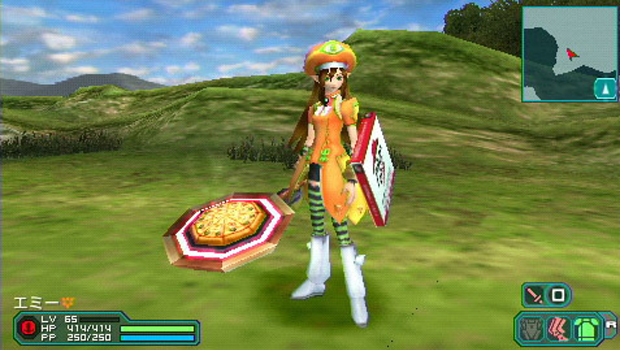
As weve catalogued in the past, video games and pizza go together like rama lama lama ke ding a de dinga a dong. Still, while Ninja Turtles or Crazy Taxi teaming with Pizza Hut makes sense, few wouldve predicted that the Japanese version of PSP title Phantasy Star Portable 2 would team with the chain. Even fewer would guess itd result in wearable pizza box armor.
Beyond adding purchasable pizzas and figurines of Pizza Huts Japanese mascot, Cheese-Kun, the weirdest product placement came when equipping your avatar. You could outfit them with a pizza box shield and hand them a pizza pan weapon. Perhaps the boat oar-sized pan could do some damage to a Rag Rappy, but good luck blocking an attack with a discarded square of cardboard that's encrusted with old mozzarella.
Uncharted 3s Subway sandwiches
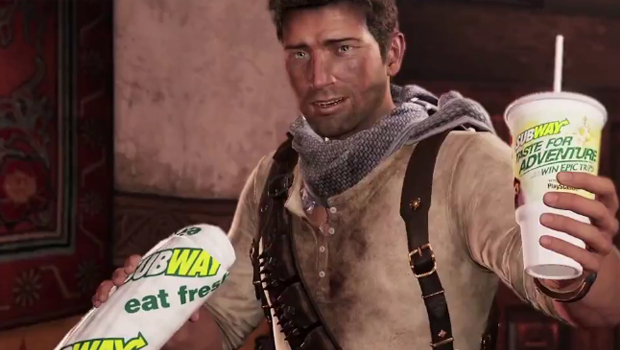
The Uncharted series is one of the most successful franchises in the last decade, and Sony seems ready to support the series for years to come. Why, then, does the game need any extra ad dollars, particularly from sandwich seller Subway? Were not sure, but that didnt stop the sub shop from teaming with Naughty Dog to advertise the third installment via a series of commercials that found their way into the sequels multiplayer.
Weekly digests, tales from the communities you love, and more
We can take seeing Nathan Drake hold a sandwich in a 20 second TV ad, but what about giving him a Subway t-shirt to wear in the multiplayer beta? Or how about a Five Dollar Footlong taunt, just in case that catchy tune wasnt already running on repeat in your subconscious? All this goofiness and more invaded the multiplayer, but on the plus side, this commercialism was kept out of the stellar campaign. Plus, the Subway items make for some pretty good griefing fuel these days.
Homefronts resilient Hooters restaurants
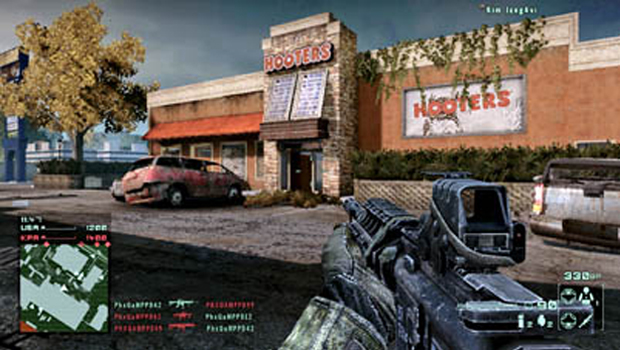
THQ ended its long run as a publisher this year, and it was expensive titles like Homefront that helped leave the company with an empty bank account. Thanks to such cash flow issue, we arent surprised that THQ stuffed as many ads into Homefront as possible. It likely helped offset some of the titles high budget. However, youd think pristine ads for Tiger Direct and Full Throttle energy drinks would stand out like eyesores in the games militarized world. And youd be completely right.
Despite North Korea successfully conquering the US, a tour of the games cities showed that the communist leaders had failed to erase many of the remnants of Americas capitalist past. The worst offender was Hooters, as the racy hot wings purveyors still seemed to be in good shape after society as we knew it ended. Wed have guessed the chain would be one of the first razed by our new socialist overlords, but perhaps the North Korean army enjoys hot sauce too much to tear it down. That would make as much sense as anything else.
Enter The Matrix really liked Powerade
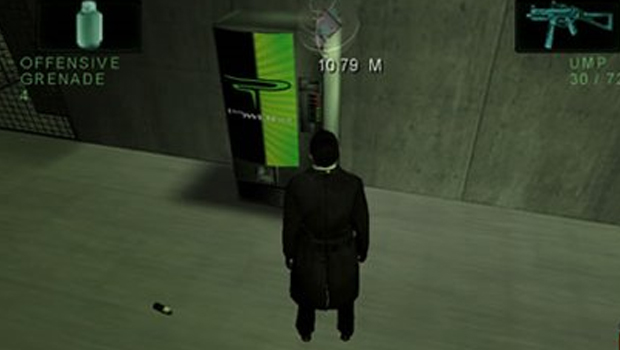
Hard as it may be to imagine now, there was a time when the first Matrix sequel, Matrix Reloaded, was one of the most anticipated films of all time. In the lead up to its release, there were a number of strange ads where agents of the computerized Matrix told viewers to purchase the sports drink Powerade because it would help fuel the machine that controlled us all. The ads raised some overly nerdy questions about the nature of the Matrix that only continued with the release of Enter The Matrix, the long awaited game tie-in.
Enter The Matrix was uneven to say the least, and it was filled with bugs that clearly stemmed from the game getting pushed to market in time for Reloaded. But while the boss fights may have been borderline broken, the devs were sure to include numerous conspicuous Powerade vending machines. Perhaps they shouldve focused more on hiring testers than shoving in multiple references to the Gatorade wannabe.
Pole Position lights up with Marlboro
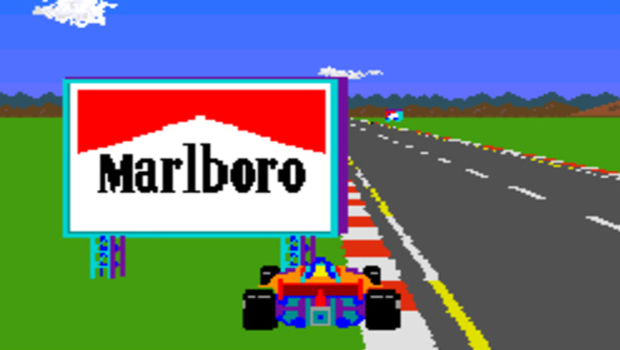
This entry is one of the earliest instances of product placement in gaming history, and its one that feels the most dated now. Pole Position was one of the first racing game hits, and while were sure Namco got paid good money by sponsors, seeing billboards for Pepsi and Canon Film also added a certain amount of realism to the game. The same was true at the time for the ads for Marlboro Cigarettes, though now it couldnt be more archaic if John Wayne was pitching them to us.
In the US its been illegal to sell cigarettes on television for decades, and the government is always mindful of tobacco being pushed towards to children. And because video games are obviously only made for children and not adults, an ad for Marlboro is way out of line. The ad was cut from later versions of the game, and even today its rare to see a false cigarettes represented in games, let alone real brands.
Pikmin 2s cornucopia of products
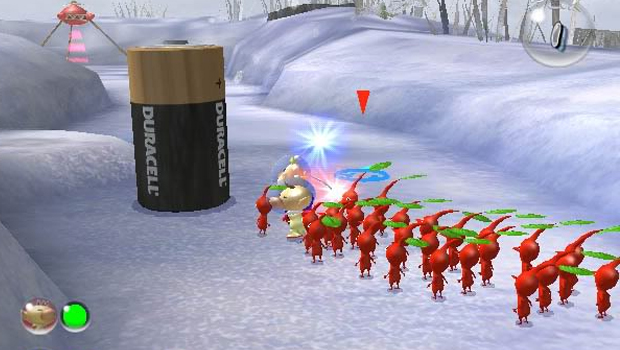
The Pikmin series main conceit is that alien travelers crash land and explore a world thats foreign to the protagonists, but all too familiar to the players. Every entry has a planet full of earthly fruits and other everyday items for Pikmin to collect, and Nintendo decided to get much more direct with the real world references in Pikmin 2. Instead of nameless items, players collected such products as Chapsticks, Duracell batteries, and a jar of Skippy brand peanut butter.
We always enjoyed how the Pikmin games never committed to whether or not the Pikmins planet was Earth. That was until the product placement of Pikmin 2 went and ruined the mystery. Its conceivable another planet could have lemons. The chances are far lower that some other globe would have Skippy peanut butter. You can see all the product placement additions made to the US and European versions of Pikmin 2 here. Fortunately, Pikmin 3 seems to feature none of the obtrusive items that filled its predecessor.
Dead Rising 2 reads Playboy for the articles
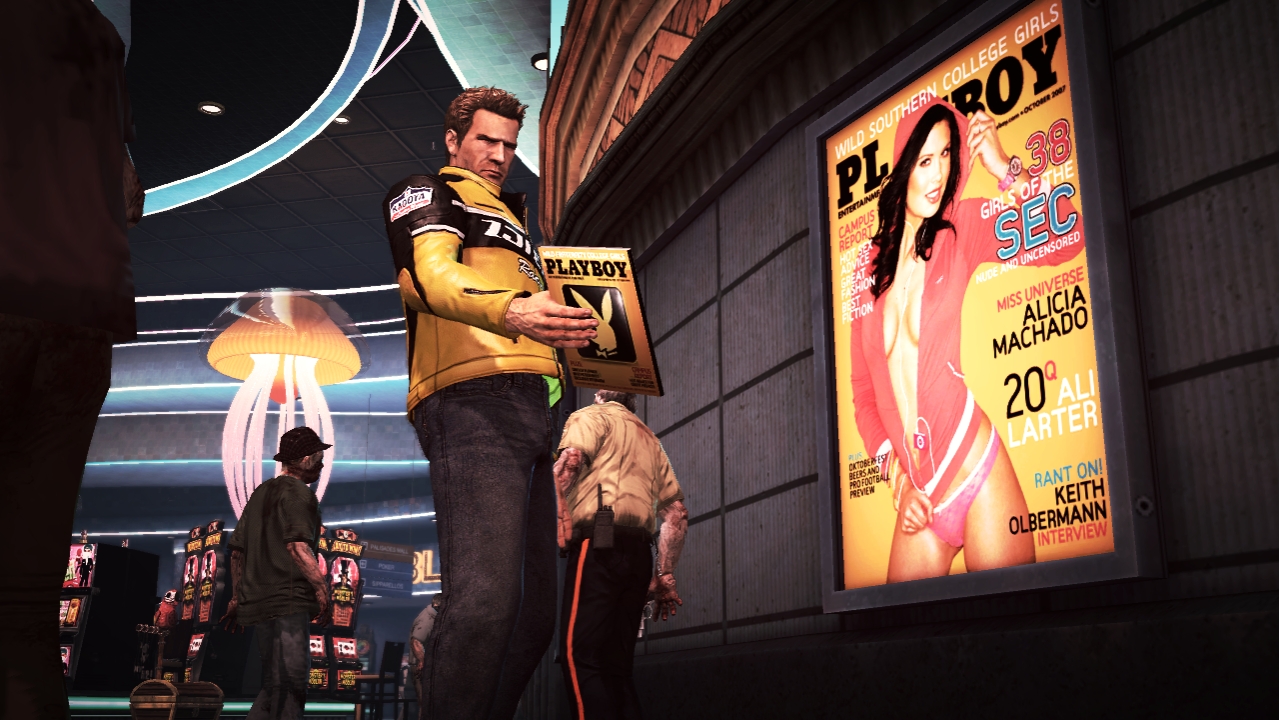
The Dead Rising games take place in giant sprawling malls that leave developers with ample opportunity to add real world items for the highest bidder. But as easy as it would be for heroes Frank West and Chuck Greene to drink Tropicana orange juice or drive a Ford Focus right over some zombies, the series seemed more interested in creating fresh, silly brands specific to its universe. But Capcom decided to make an exception when it teamed with Playboys erotic empire to add references to the gentleman's magazine into Dead Rising 2.
All around the pseudo-Las Vegas of Fortune City were posters and ads for Playboy, though the brand had more impact on the game when players picked up the branded magazine. Holding a Playboy gave protagonist Chuck Greene an experience boost for every female survivor he saved, instead of the normal effect of scaring off women. Speaking of female survivors, youll save at least one dressed as a Playboy Bunny. The sexy mag didnt really fit with the tongue-in-cheek world of Dead Rising, so its no surprise all the references were dropped when DR2 was redone to star Frank West in Dead Rising 2: Off The Record.
Fight Night Round 3 has The Burger King in your corner
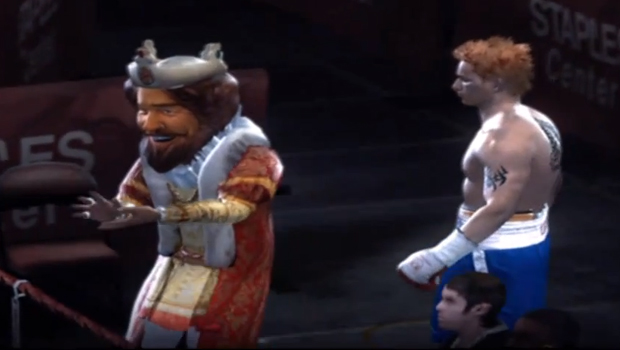
We feel like sellouts for praising commercials, but Burger King found a gold mine of awkward comedy by digging up the its old mascot, The Burger King, in the mid-2000s. The royals immobile face, silent stare, and ability to offer you Burger King food when you least expect it made him one of the most compellingly creepy spokespeople around. Still, if theres one place we didnt expect him to show up, it was the boxing ring.
Unlike some games, plastering a real world sports game in ads actually does enhance the realism, because its impossible to watch any professional sport without 50 dozen ads staring you in the face. The Burger King ads in Fight Night Round 3 fit with the world, but unlocking The Burger King as your corner man just made it all too on the nose. Particularly when there was even a Burger King branded Achievement. Plus, what help can the King do for you as your corner man, beyond silently staring at you?
Splinter Cell: Chaos Theory stays cool with Axe body spray
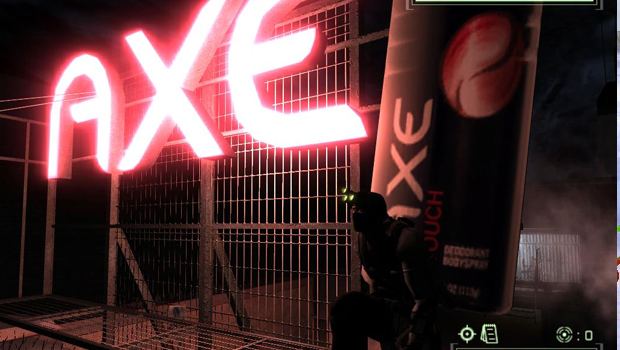
Ubisoft was really on the cutting edge of product placement in 2005. At the time the company put out a press release discussing how the company would seamlessly intergrate real world brands into the upcoming Splinter Cell: Chaos Theory, and that it would ultimately benefit players because it would bring realism to Ubisofts games... By now all the product placement looks a bit dated, though we suppose a high tech, secret agent like Sam Fisher might need items from companies like Nokia or AMD. Its less believable that hed have anything to do with Axe Body Spray.
In case youre blissfully unaware of the hygiene product, Axe got big with ads that showed the pheromone-filled body spray driving women crazy. And we mean really crazy, to the point where they would attack a man en masse should they come across the scent of Axe. Though were willing to bet nothing remotely like that has ever happened to a single man who used Axe, if Fisher used the spray that was so aggressively advertised in game, half a dozen women pouncing on him during a mission would surely blow his cover. If nothing else, the guards would smell the cologne from a mile away.
Get paid
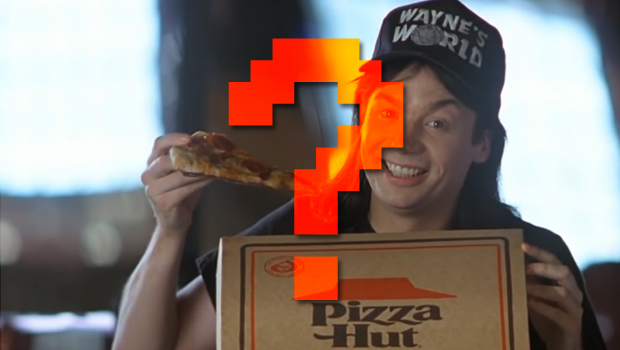
Those are all the most egregious instances of in-game ads we could think of, but wed love to hear any suggestions that we missed. tell us in the comments already!
And if you're looking for more, check out the most egregious junk food advergames and our list of when real world pizza and games collide.
Henry Gilbert is a former GamesRadar+ Editor, having spent seven years at the site helping to navigate our readers through the PS3 and Xbox 360 generation. Henry is now following another passion of his besides video games, working as the producer and podcast cohost of the popular Talking Simpsons and What a Cartoon podcasts.



